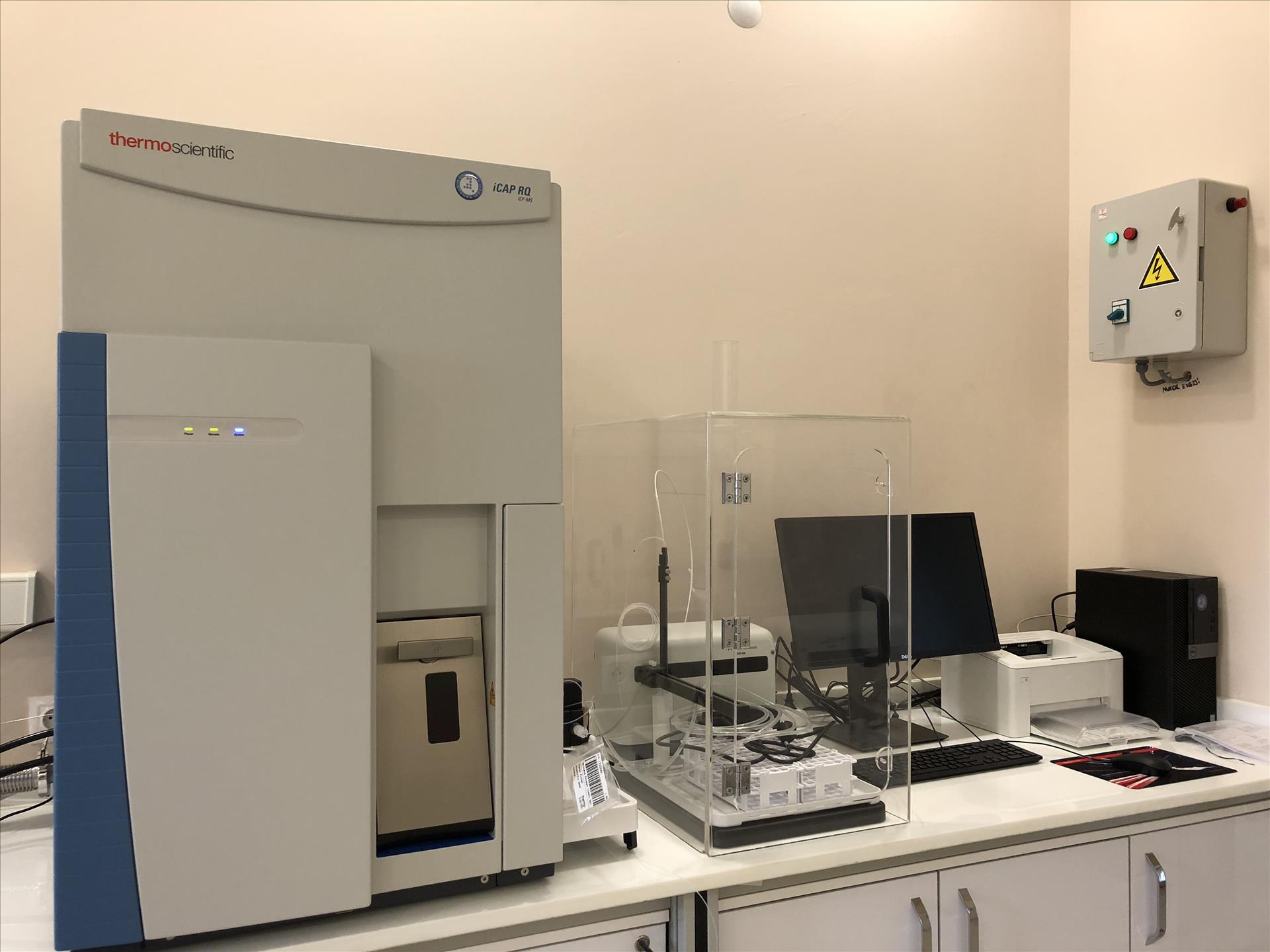INDUCTIVELY COUPLED PLASMA-MASS SPECTROSCOPY (ICP-MS)
Inductively coupled plasma-mass spectrometry (ICP-MS) is a type of mass spectrometer capable of identifying isotopes qualitatively and quantitatively. This process is usually accomplished by ionizing the sample in solution with inductively coupled plasma (Ar plasma) and then determining the mass / charge (m / z) ratios using a mass spectrometer to separate and measure these ions. The limitation of many elements for ICP-MS is lower than billionths (ppb, pounds per billion). Therefore, it is the most appropriate method for determination of the trace element and its quantity.
One of the greatest uses for ICP-MS is environmental analysis such as natural spring water, drinking water, wastewater and soil samples. Besides, it is the most common device for heavy metal and trace element analysis in food, medicine, geology and mine fields. ICP-MS analysis is also required for the analysis of metal elements in body fluids in toxicology, medical and forensic medicine.
The mass range that the present ICP-MS system can scan during analysis is 2-290 amu. In addition, analysis of samples containing mineralogical or hydrofluoric acid (HF) can easily be carried out with the PFA descending working kit available in the system. The low mass cut off module of the system can yield more efficient results compared to similar ICP-MS systems as the analysis line is separated without interference from the mass spectrometer.
In addition, as in every application of quantitative analysis, the most important step in the ICP-MS method is the pre-analysis sample preparation. Milestone Ethos UP microwave combustion system, high temperature and press rotor and solid state samples are made to be homogenous solution. With more than 300 methods in the microwave system, the most suitable conditions can be provided for working with different types of samples.
Device: Thermo iCAP RQ
Standard Solution:
Aluminum (Al), Antimony (Sb), Arsenic (As), Gold (Au), Copper (Cu), Barium (Ba), Bismuth (Bi), Boron (B), Mercury (Hg), Zinc (Zn), Iron (Fe), Silver (Ag), Cadmium (Cd), Calcium (Ca), Tin (Sn), Cobalt (Co), Chromium (Cr + 6), Lead (Pb), Magnesium (Mg), Molybdenum (Mo ), Nickel (Ni), Palladium (Pd), Platinum (Pt), Potassium (K), Silicon (Si), Sodium (Na), Strontium (Sr), Titanium (Ti), Tunsten (W), Vanadium (V ).
Scope of application:
- Geological Analysis; Geochemical analysis of rock, ore, soil samples and determination of heavy metals such as gold, platinum and precious metals in these samples.
- Hydrogeological Analysis; Elementary analysis of groundwater, source, thermal and mineral waters.
- Environmental Analysis; Determination of heavy metals in water, wastewater, soil and sludge samples. Determination of drinking water quality by elemental analysis.
- Food Analysis; Determination of heavy metals in food products, especially fruit juices.
- Determination of trace elements in industrial raw materials and products.
- Petrochemical; Elemental determinations in raw materials and products.


